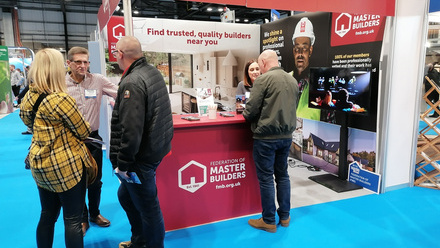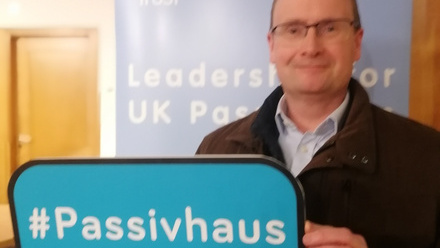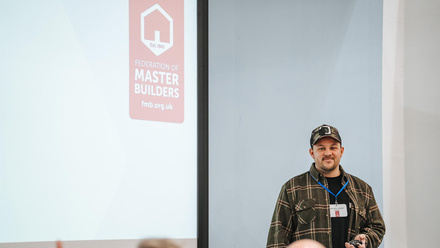From our altruistic and visionary origins in 1941 to help Britain build back better after the London Blitz in the previous year, the Federation of Master Builders has aimed to improve the lot of small and medium-sized (SME) builders. The past 80 years have been filled with milestones.
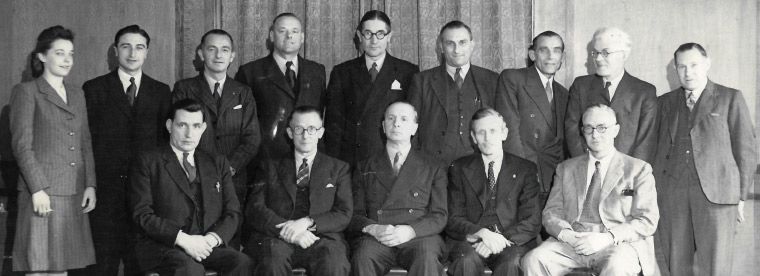
15 small builders founded the FMB to build back Britain after the London Blitz of 1940
For Chief Executive Brian Berry, a major achievement of the FMB is “giving meaning to what a Master Builder company is” – not every building company is good enough to be an FMB member. The FMB’s independent inspection requirement is a robust vetting process for companies wanting to join. It’s unique and sets us apart from the competition,” Berry says. “The FMB has moved away from being a traditional trade association to one that champions the highest standards."
“This change has had a much wider impact by helping to improve the FMB's credibility within the construction industry, giving reassurance to consumers, and winning the ear of the Government as a trusted organisation.
All this has been beneficial to help position Master Builder companies as the best in the industry. Underpinning this move has been the creation of a national Standards Committee and the Code of Conduct to ensure all members adhere to the same standards.”
Standards feature prominently in discussions about our future as a not-for-profit trade association and the future of the broader SME construction sector in the UK. Our members want to stop cowboy builders from damaging the sector’s reputation.
FMB National President Jan Etchells says: “From our efforts to ensure members deliver high-quality work to our campaign for a UK-wide compulsory licensing scheme to protect standards, we continue to lead the way. All of our members have now been independently inspected and vetted, which gives clients greater confidence and helps to set the FMB apart.”
Creating an extended construction family
Members tell us that the sense of support that we provide is significant.
Etchells says: “For me, the FMB is like an extended family. This year, I’ve enjoyed joining fellow members online to celebrate outstanding building projects and tradespeople through the Master Builder Awards. The awards always provide a great opportunity to come together, but it has been extra special to recognise the achievements of members in such challenging circumstances as we have had in the past two years.
“The project by the overall Master Builder of the Year, Stonewood Builders Ltd, was a clear demonstration of British builders’ craftsmanship at its very best.”
A Parliamentary Reception in September, which was sponsored by B&CE, we marked the FMB’s 80th anniversary. “It was wonderful to see people face-to-face and to reflect on how far we’ve come as an organisation,” Etchells says.
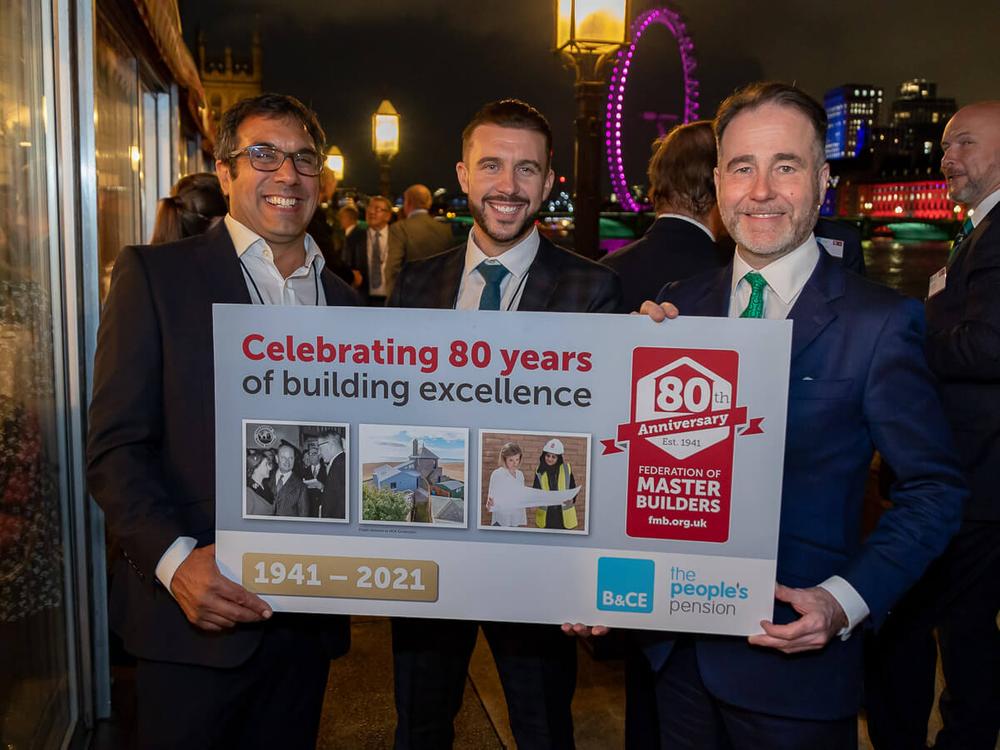
Supporting Master Builder companies
Etchells is always eager to hear from members as feedback is invaluable in shaping the future of the FMB and the broader construction industry.
“It also helps us to understand the issues members are facing across the UK and influences the actions we take on their behalf.”
Berry adds: “The FMB is committed to the continuous process of improving our services to members and staying ahead of the curve.”
This includes:
- Investing in the FMB IT system and database over the last 18 months – the FMB has not lost one working day during the pandemic;
- Investing in digital marketing to reflect the changing methods of communication;
- Improving the website and functionality. The FMB recently won a national award for its new website, which was considered innovative and essential to promoting and serving FMB members;
- Introducing helplines to advise members on issues affecting their businesses;
- Providing free contract templates to members;
- Hosting webinars on current industry topics;
- Ensuring access to regional and national directors across the UK;
- Introducing a national Facebook group so members can talk about issues affecting them; and
- Enhancing the products offered by FMB Insurance.
Learning lessons from the past
When our founding members set up the FMB in 1941 they did so to give themselves a strong and independent voice.
“That need has remained, and will always remain, as members know that only by joining together are they stronger and more influential,” Berry argues.
"I think the most valuable lesson that the FMB has learned over the last 80 years is the simple fact that it is a membership organisation and as such is always mindful of the need to listen carefully to what members want. The challenges during the post-war period of material and labour shortages are sadly all too familiar 80 years on. Today, though, we face an even greater long-term challenge; namely the need to tackle climate change and create a low carbon built environment. With buildings and construction processes contributing 39% of the UK’s total carbon emissions, the way our industry operates will have to adapt and change.”
A significant focus point for the future is improving skills and training within the construction industry, which will need more than 200,000 extra workers over the coming years.
“People are at the heart of our industry, which is why greater efforts are needed to improve training and offer high-quality apprenticeships so that vocational training is held in the same regard as academic qualifications,” Berry reasons.
“This is a lesson that members know all too well given that over 40% of you train an apprentice. To attract more people into our industry, we need to make it more attractive to those who have traditionally steered away – most notably women. Local builders are well placed to step up to this challenge but the Government needs to create the right business environment to ensure small building companies have the opportunities they need to flourish, and are not squeezed out of an increasingly competitive market because of inaction or cumbersome regulations.”
Tackling future industry challenges
There is strong client demand in the repair, maintenance and improvement (RMI) sector, says Berry, but the industry is still struggling.
“The impact of COVID-19 has been dramatic in terms of the supply of materials and exacerbating an already serious skills shortage. Small building companies have been particularly hard hit by the lack of supply of many materials, most notably timber, roofing tiles and cement.”
Reduced supply of materials and subsequently increased prices – caused by a combination of increased global demand, container shipping issues, trade issues, and the impact of Brexit – are putting the pressure on SME construction companies.
“I know it may be difficult to see the positives at the moment, especially as the current issues with product pricing and materials shortages continue to cause challenges,” says Etchells.
“One positive about the future is that the FMB will continue to be in our corner, as it has been since 1941, giving us a strong voice in the industry and providing support to help us through the ups and downs. Add to all of this a growing energy crisis, Berry says, “and it’s not hard to understand why many businesses are being knocked off course”.
While FMB members are having to show great resilience, there are also existing opportunities on the horizon.
“The Government recognises the critical role that the construction sector plays to keep the economy moving, which isn’t surprising given our sector contributes 8% of the UK’s GDP and employs three million people,” Berry explains.
“But an even greater opportunity is the need to make our 29 million homes greener and more energy efficient. What is needed though is a long-term plan to retrofit our existing homes. Such a plan would create an additional 500,000 jobs over the next 20 years as well as improve the lives of thousands of families living in poor housing conditions that often affect their health.”
Looking to the future of the FMB
From a more strategic point of view, FMB members have plenty to be excited about. At the FMB we are:
- Leading the call for a compulsory licensing scheme for UK construction;
- Shaping a proposal for a multi-trade apprenticeship standard;
- Lobbying for a National Retrofit Strategy with members at its core; and
- Calling for greater opportunities for SME house builders.




